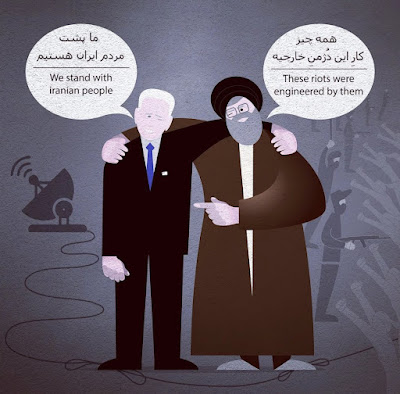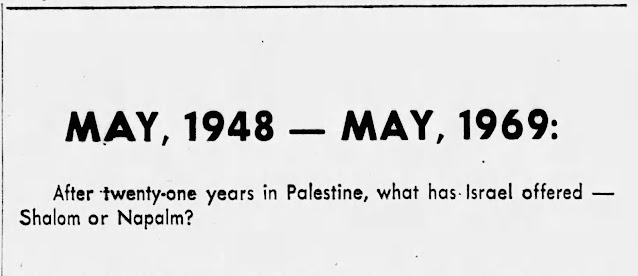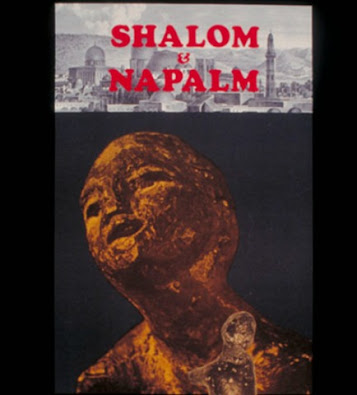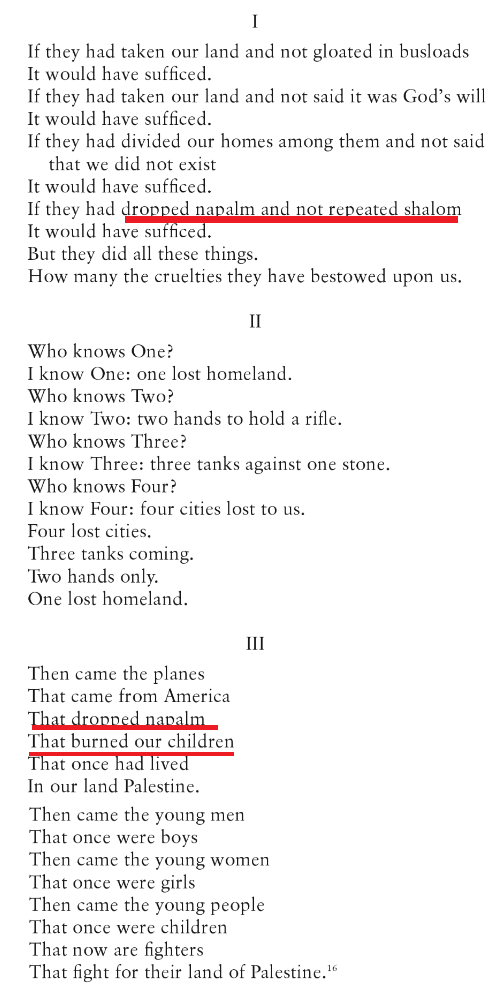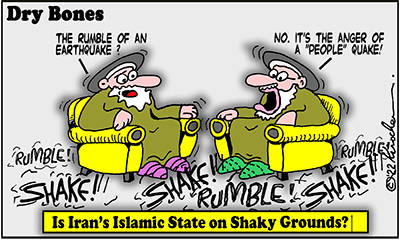Melanie Phillips: Antisemitism and Israel-bashing are one and the same
Those trying to defend the Jewish people from the tsunami of Jew-hatred swamping the West often face an implacable refusal to acknowledge that anti-Israel or anti-Zionist attitudes are the modern iteration of antisemitism.The academic boycott folly
It's claimed instead that Israel's defenders are trying to silence criticism of what Israel does, just like any other country would be criticized.
But Israel isn't criticized like any other country. It is instead subjected to obsessive libels, double standards and scapegoating for crimes of which it is not only innocent but is in fact the victim – all unique characteristics of antisemitism.
This lethal myopia now stretches from Australia to a London theater.
Four years ago, a conservative Australian government announced that it recognized "West Jerusalem" as Israel's capital. This week, Australia's current Labor government reversed that decision – and declared that Israel's capital is Tel Aviv.
Despite the claims made to the contrary by foes and false friends alike, Israel is legally, historically and morally entitled to Jerusalem. What's more, the patent absurdity of declaring that Tel Aviv is Israel's capital was exceeded only by its arrogance.
A sovereign country decides for itself where to situate its capital. No one else can decide that its capital is actually another city altogether.
Australian Prime Minister Anthony Albanese declared that "the status of West Jerusalem should be resolved by peace negotiations between the Israelis and Palestinians."
But it's eastern Jerusalem that's the source of controversy. No one has ever suggested that the rest of Jerusalem, which has been part of Israel since the creation of the state, is up for negotiation.
Jerusalem, which had a Jewish majority from the mid-19th century, is the ancient capital of the Jews' homeland and is central to Jewish belief. Albanese's comment made it absolutely clear that Australia has singled out Israel for an act of gratuitous aggression aimed at the very core of Israeli and Jewish identity.
In doing so, Albanese's policy has met the definition of antisemitism. Yet his party, like so much of the Western left, holds that anti-Israel or anti-Zionist attitudes are a legitimate political position. They associate antisemitism solely with ancient, exterminatory stereotypes of Jewish money, power and demonic blood-lust.
Yet the Palestinian cause they champion is based on precisely such stereotypes. So, they tie themselves into knots to maintain their support for the Palestinian cause while distancing themselves from its antisemitism.
The boycotters of South Africa did not support democratic initiatives in that country, according to Hyslop. Similarly, the BDS movement has no interest in compelling the Palestinian Authority or Hamas to change their authoritarian ways; the focus is solely on demonizing Israel.New poll reveals far left’s embrace of anti-Semitic tropes
Another resemblance is found in virtue signaling. “The culture of the boycott produced an imagined South Africa that was a theater of morality,” Hyslop says. “But the problem was that, too often, the ostensible topic of South Africa simply became the occasion for a kind of parading of the foreign scholar’s moral virtue…When traveling abroad in the 1980s, I was struck by the way in which many keen supporters of the boycott were uninterested in discussing the details of what was happening in South Africa. South Africa was merely the occasion for them to play a heroic (in reality, mock-heroic) role on the stage of the theater of morality.”
Hyslop wrote, “I can honestly say that, throughout the 1980s, I did not talk to a single South African scholar or university employee whose political views had been changed in any way by the academic boycott.” He added, “the academic boycott had little in the way of visible achievement.”
“In many ways, postapartheid South Africa is an exemplary democratic polity,” Hyslop says. “It has reasonably free and fair elections….There is no censorship, and vigorous political debate can be found in the print media and on the radio….scholars can teach and publish more or less what they wish. Nobody gets arrested for their political views.”
On the other hand, he observes that supporters of the new South Africa “are reluctant to acknowledge the persisting inequality, the corruption, and the incipient authoritarianism of the postapartheid polity.”
Supporters of the Palestinians do not acknowledge the existing corruption and denial of human rights by Hamas and the P.A. While there is every reason to expect those characteristics to remain, it is hard to imagine a Palestinian state with any of the attributes of the “exemplary democratic polity” that emerged in South Africa.
It was not sanctions that brought about change in South Africa, Hyslop says. “The mass revolts inside South Africa were the chief force making for the eventual democratization.” The academic boycott “had no important political effect in undermining apartheid and…may have had a minor negative impact on postapartheid society.”
Hyslop also suggests the South African case should be a cautionary tale for the BDS crowd. “The politics of the boycott engendered a situation where academics approached the South African question primarily as moralists. In doing so, they largely abandoned the contribution they could have made as intellectuals to the creation of South African democracy. To this day, it damages their ability to engage with the country.”
Four-fifths of self-identified “progressive” and “very liberal” likely voters in the U.S. believe Jewish Americans have “unfair advantages” that need to be addressed, according to a new poll conducted by the Jewish Institute for Liberal Values (JILV) and OneMessage Public Strategies, which revealed the American far left’s embrace of a series of anti-Israel and anti-Semitic tropes.
In the nationwide survey of 1,600 likely voters, 17% of progressives and 20% of very liberal respondents agree that American Jews have too much power, while 21% of progressives and 25% of very liberals say Jews “benefit from privilege.” Forty-five percent of progressive respondents view Israel as an “occupier/colonizer,” and 47% of progressives think Israel has too much power.
Additionally, 67% of progressives and 54% of very liberals report that they have “cancelled” a friend or family member due to their political views.
“This poll confirms some of the worst fears of the Jewish community—that a dogmatic commitment to critical theory and a social justice lens can contribute significantly to anti-Semitism,” said David Bernstein, CEO of JILV. “While the majority of Americans support freedom of speech, oppose hyper-partisanship and support traditional liberal values, the far left continues to view politics as a zero-sum game—dividing the world into ‘oppressors’ and ‘oppressed,’ and willing to expel those they disagree with from their social circle—and the results aren’t good for Jews.”














